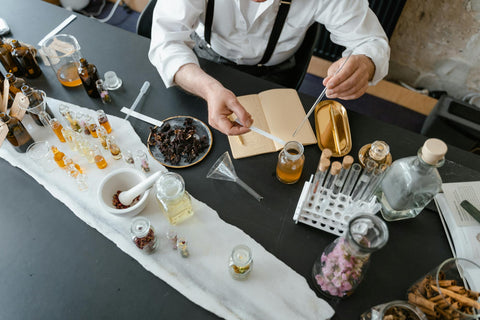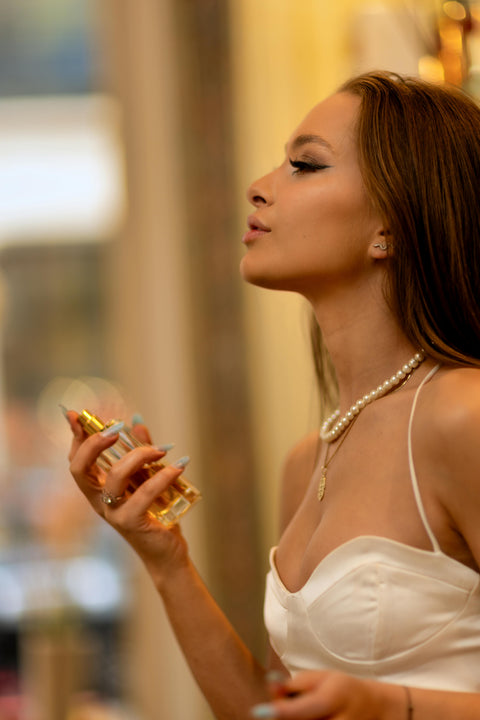Perfume, also referred to as fragrance, is an aromatic blend of various scent compounds, alcohol, and water designed to create a pleasant odor. It is usually applied to the skin to impart an individual and distinctive scent.
The creation of perfume is a complex art involving the blending of a variety of natural or synthetic scent compounds to form a unique fragrance composition. These scent compounds can originate from plants, flowers, fruits, resins, herbs, and other natural sources, or they can be synthesized in the laboratory.
Depending on the concentration of scent compounds, there are different types of perfume:
Parfum (Extrait de Parfum): The most concentrated form with a fragrance oil concentration of about 15% to 30%. Due to its high concentration, a small amount is sufficient for a long-lasting scent effect.
Eau de Parfum (EdP): This variant contains a fragrance oil amount of approximately 8% to 15%. It is slightly lighter than perfume and is suitable for evening use or special occasions.
Eau de Toilette (EdT): With a fragrance oil concentration of 4% to 8%, this is a lighter version for daily use. It evaporates faster than perfume and eau de parfum but allows for more generous application.
Eau de Cologne (EdC): An even lighter variant with a fragrance oil concentration of about 3% to 5%. It is fresh and is often used as a light aftershave.
Eau Fraîche: Similar to EdC but with a lower fragrance oil concentration, suitable for those who prefer fresh and subtle scents.
The selection of a perfume is a personal decision and should depend on the season, occasion, and individual preferences. It is a way to emphasize one's personality and style, create memories, and leave an unforgettable presence.
Image by MART PRODUCTION



